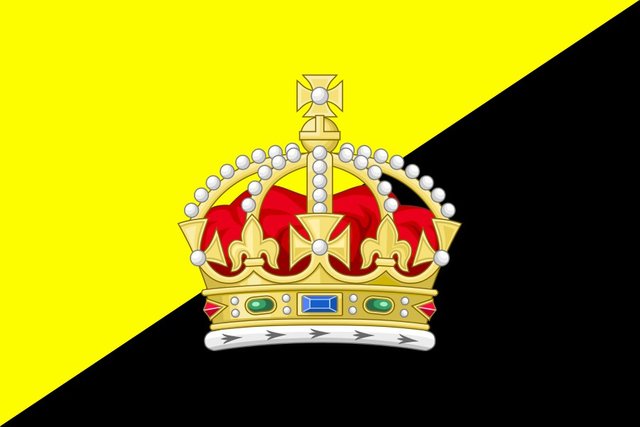
By Insula Qui
Author’s note: The main themes of this series will be further expounded upon in my upcoming book Anarcho-Monarchism, which will be available in April.
Stateless Statecraft
At the end of Part I, I posited that statecraft would best function and flourish without a state. This is an assertion that could seem oddly self-defeating unless the meanings of state and statecraft are clarified. Statecraft is by definition simply good governance of the internal and external affairs of a political body. The state is a group of people who exercise a monopoly on initiatory force within a geographical territory. Although the word 'statecraft' directly refers to the state, there is no philosophical reason for why statecraft would disappear if there were no state. When we consider the implications of governance on the free market, the abolition of the state would lead to the largest amount of statecraft possible. To explain why this is so, it is necessary to formulate a theory of property.
Absolute Property
Each person who owns property in a libertarian social order is the absolute monarch over his own property. They are not bound by the constraints of an overarching state that weakens the rights they have to their property. The landowner can decide the laws that apply within his property, who can enter his property, and how to use all of the resources on his property. The owner also reaps the benefits when renting the property that he owns. A society built around property is a society in which each person can rule absolutely over his own property without external interference. Decentralization involves a centralization of power for each individual and family, thus increasing power rather than decreasing it.
One can view a worldwide anarcho-capitalist society as millions or even billions of monarchies co-existing. (This is ignoring any other associations and any potential use of force, which will be dealt with in Part III.) Since property ownership makes each person into a monarch, each person will need to manage one's property using the utmost care. This is especially relevant with regard to social relations, as social interaction involves multiple individual monarchs managing their property in unison. Furthermore, each of these monarchies has to fully internalize the costs they impose on others, and will therefore be held completely responsible for everything they do. Before formulating a wider theory of society, it is important to address this issue of externalities.
Read the entire article at ZerothPosition.com
Whould you like to join your sp with my account @minnowunited created for this purpose. I am thinking of 30 people group contribute equal sp. Any question in mind feel free to ask. We can use this account for the betterment of primary account. Just reply this comment. Or you can ask me on this discord server https://discord.gg/QCZuR7N
Downvoting a post can decrease pending rewards and make it less visible. Common reasons:
Submit